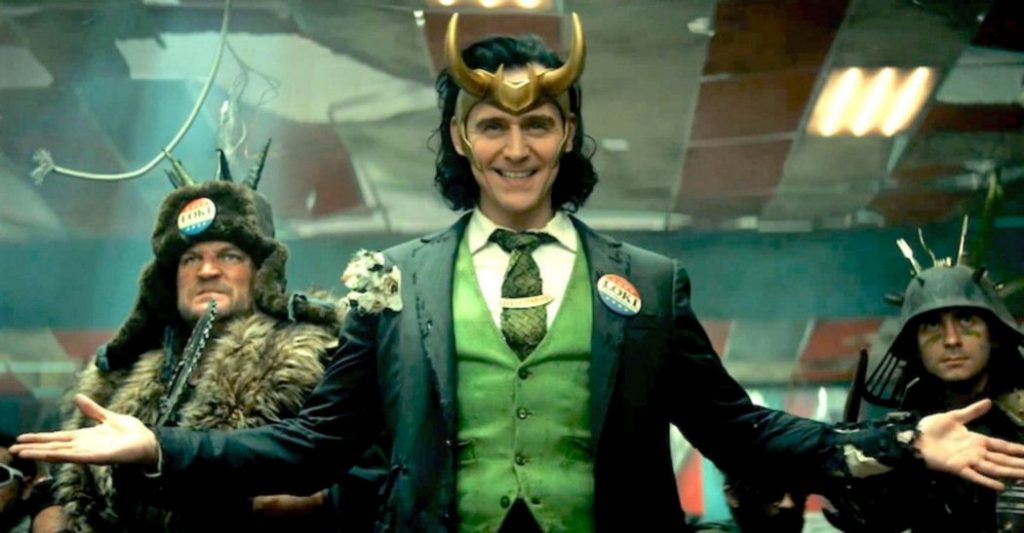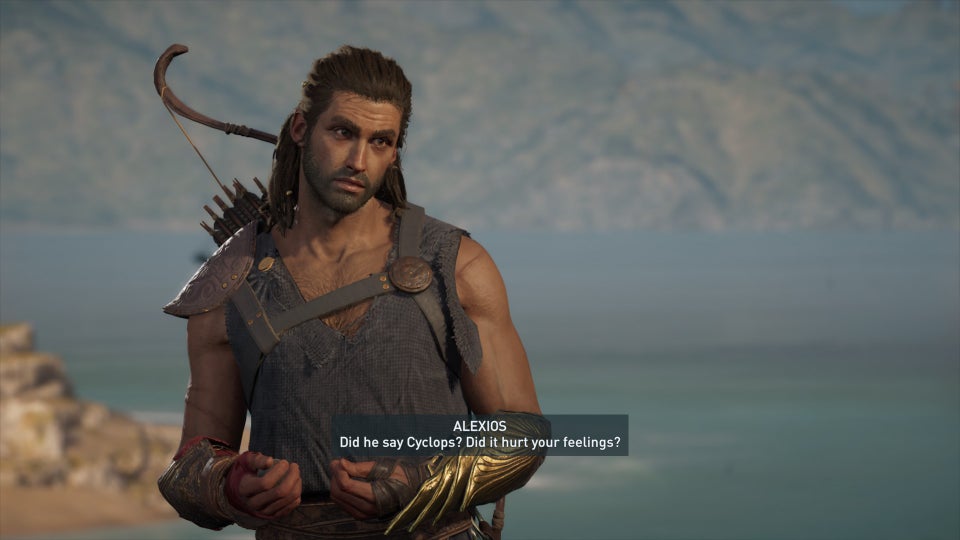
Fight or Flyte? The Poetic Tradition in Assassin’s Creed: Valhalla
Warning: spoilers ahoy! Sort of. They’re minimal really. Hardly noticeable. Spoilers lite if we’re being honest.
Flyting – examples of which can be found throughout Northern European literature, from Irish and Scots to English and Norse – was a performative exchange of insults between poets that celebrated their wit, eloquence, and general capacity to be a Bad Bitch™. These verbal (and textual) duels typically comprised insults focussing on a foe’s sexual perversion, their lack of courage in battle, or their physical ineptitude, and were frequently, joyously vulgar. Think Christmas dinner conversation with your favourite drunk aunt.

An early example can be found in the Lokasenna (or The Flyting of Loki), a poem from the Poetic Edda which depicts the poetical invectives between Loki and the Æsir (the main pantheon of Gods in Norse mythology). Below we have an excerpt from an exchange between Loki and Bragi (the god of poetry and music no less):
Bragi spake:
"Now were I without | as I am within,
And here in Ægir's hall,
Thine head would I bear | in mine hands away,
And pay thee the price of thy lies."Loki spake:
"In thy seat art thou bold, | not so are thy deeds,
Bragi, adorner of benches!
Go out and fight | if angered thou feelest,
No hero such forethought has."
Bellows (1936): 151-152.
“[A]dorner of benches” – is there a more devastating accusation of cowardice? The first line is Loki essentially decrying Bragi as a keyboard warrior: sweating Mountain Dew and explaining comedians’ jokes back to them on Twitter.
Bragi, conversely, does seem somewhat less well-stocked in the ol’ wit department: “You wouldn’t like me when I’m angry” he says: “Don’t make me get off my chair! I swear, if I have to stand up! Mum! He’s doing it again!” I squared up to my grandma in this fashion once; she punched me in the throat.

Which brings us to Valhalla (2020). Ubisoft’s Assassin’s Creed: Odyssey (2018) was a phenomenal recreation of the ancient Hellenic world – just ask this archaeologist – and they’ve taken a similarly well-researched approach to Valhalla: from silver coinage to longship design. “But it was wildly historically inaccurate: that’s not how kings were chosen!” I hear you shout from your basement, dribbling soda. I don’t care: back to the bench with you! (I will concede, however, that male Eivor is not nearly as hot or funny as Odyssey’s Alexios, and no I will not surrender the tannoy in Tesco until everyone shopper knows this).

For me (and therefore for you), the most notable historical inclusion was, of course, flyting. These stats-boosting poetic duels are common throughout the map in both Norway and England, and will test your ability to detect rhyme and intuit metre. Some bold-as-brass NPC drops a phat insult against you, and you – absolutely raging by this point – have to select your response from three available choices. The correct one is that which complements both the NPC’s end-rhyme (final sounds which rhyme e.g. 'I serenaded the old woman who lives across from my door | She bade me “shut the fuck up” and called me a whore') and its number of feet.
Feet, for the unfamiliar, are a basic unit of measurement in poetry: collections of stressed and unstressed syllables which structure the rhythm of a poem. For example, the word unite is comprised of an unstressed syllable followed by a stressed syllable. Typically, these are characterised as dee – short, unstressed – and dum: longer, stressed. Whether a syllable is stressed or not is dependent on the emphasis placed on it during an utterance: for me, the emphasis is placed on the second syllable when I say ‘unite’: dee-dum. This may not be the case for everyone: heretics undoubtedly live among us.
“[A]dorner of benches” – is there a more devastating accusation of cowardice?
Now, there are all kinds of feet (beyond nice ones like mine and everyone else’s gross ones). ‘U-nite’ for example, is an iamb: an unstressed syllable followed by a stressed one. Byron’s She Walks in Beauty is a nice example of iambic metre: “She walks in beau-ty, like the night.” A trochee, conversely, is a stressed syllable followed by an unstressed syllable e.g. Gar-den. Poe’s famous The Raven is primarily written in trochaic metre: “Once u-pon a mid-night drea-ry, while I pon-dered, weak and wea-ry.” And you certainly aren’t limited to two syllables. An anapaest is two unstressed syllables followed by a stressed one e.g. O-ver-come. You’ll find an example of this type of foot in Byron’s The Destruction of Sennacherib – absolute banger if you haven’t read it: “When the blue wave rolls night-ly on deep Gali-lee.” And they said an undergrad in English literature was a waste. I may have debt and limited job opportunities but behold! My mountain of incredibly google-able knowledge!

Armed with this understanding of Valhalla’s flyting victory conditions, let’s consider this early encounter with Manning, Fighter of Wolves. A burly type, I was initially surprised by his eloquence – shame on me. His opening volley is: “Have you ever seen muscles as massive as mine?” And to be fair, his muscles are sizeable and inspire in me unclean thoughts. Our task is then to select from the three options the ending which best complements this line and, of course, delivers a devasting riposte. Listening to the museful Manning, he is using iambic metre: unstressed syllable, stressed syllable. Our three options are:
“You have the form of a very large swine.”
Wrong: this is in fact a savage put-down from my mother when I’m just trying to enjoying a swim at the pool. And it’s not entirely iambic – I’m hearing a couple of cheeky trochees in there – and there certainly are not enough feet (said the cannibal to the chef).
“I’m not awed by your muscles, but shocked by your pride.”
Also wrong: a yearbook entry from my favourite PE teacher. “I’m not awed” reads as anapaestic to me, and “pride” doesn’t work as an end-rhyme.
“What you make up in muscles, you’re lacking in spine.”
Boom! We have a winner! “Spine” compliments the end-rhyme of “mine,” and you can comfortably read it aloud as iambic. Also a direct quote from my concerned chiropractor.
...these kinds of poetic and literary pursuits are steadily finding their way into more games...
Beyond Valhalla, we can find numerous examples of flyting in modern media. In the final installation of Rick Riordan’s Magnus Chase and the Gods of Asgard trilogy, The Ship of the Dead, the eponymous protagonist flytes to the death with Loki (an event involving body-shrinking and walnuts, I don’t know).
In the Monkey Island video game series (and especially The Secret of Monkey Island), flyting is integral to victory in sword-fighting: as in Valhalla, you must counter your opponent’s invectives with insulting (and, in the sequel, rhyming) ripostes. A sufficiently stinging jibe will throw your enemy off and give you the upper hand in battle, which, if maintained for long enough, secures you the win. Memorable exchanges include:
“I once owned a dog that was smarter than you!”
“He must have taught you everything you know!”
And:
“You fight like a dairy farmer!”
“How appropriate. You fight like a cow!”

Perhaps most heartening is that these kinds of poetic and literary pursuits are steadily finding their way into more games with meaningful narratological and ludological function: see also the haiku quests in Ghost of Tsushima.
And if you’ve an interest in the ritual insulting of others (and if you don’t: why do you hate fun?), I would recommend The Flyting of Dunbar and Kennedie (the earliest example of flyting in Scots: c.1500 baby), which has been suggested to possess the earliest recorded use of the word ‘shit’ as an insult. A particularly delightful line is Kennedie’s accusation that Dunbar is: “a shit without wit, only cheap tawdry tricks.” The perfect Twitter bio, frankly.
References
- Bellows, H. The Poetic Edda (Bibliolife, 2011).
- Dunbar, W. & Kennedie, W. The Flyting of Dunbar and Kennedie (OUP, 2021).
No comments
Start the conversation…